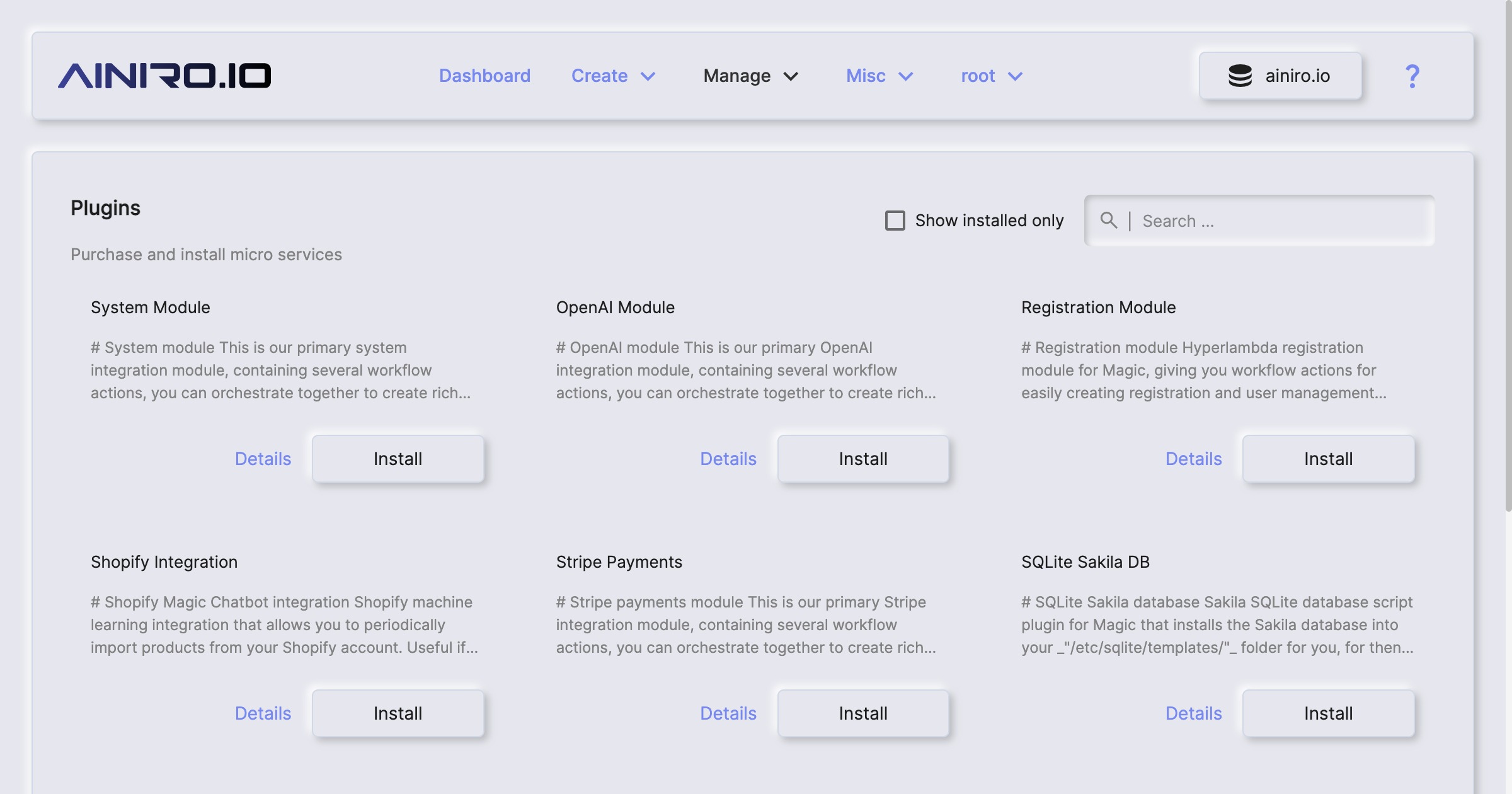Plugins
The plugins component is Magic’s integrated “AppStore”, and allows you to install backend micro services on the fly, without interrupting normal usage. It resolves towards Aista’s repository of plugins, that contains several pre-fabricated backend micro services, serving some generic requirement, such as for instance translations, ticket management, etc. Most plugins automatically takes care of creating their databases, and other things required to initialise the plugin.

Notice, such plugin micro services might cost you a fee to install into your own Magic backend, implying you’ll have to go through PayPal or some similar payment provider to gain access to install the plugin.
Plugins provided by Aista
Below is a list of some of the plugins we provide out of our plugins module.
- Aista CRM, a small SQLite database DDL script creating a CRM type of database for you
- Stripe Payments, allowing you to integrate Stripe payments into your own Hyperlambda solutions
- Tickets, a micro service ticket system, giving you the ability to persist support requests, and answer these
- SQLite Sakila DB, which is MySQL’s Sakila database ported to SQLite
- SQLite Northwind DB, which is Microsoft’s Northwind database ported to SQLite
- SQLite Chinook DB, which is another SQLite type of database that tracks albums, tracks, artists, etc
- BabelFish, which is a translation micro service making it easy to translate your applications into a whole range of different languages
How plugins works in Magic
When you install a plugin, a ZIP file is downloaded from our plugins repository, and unzipped into your modules folder. After unzipping the file, all Hyperlambda files inside of any “magic.startup” folders found inside of your plugin will be automatically executed, allowing for startup and installation logic. And in fact, if you create your own micro service module using Hyperlambda, you should create such startup folders yourself, where you initialise your plugin, by creating slots your module depends upon, creating its initial database if it’s needing a database, etc.
After you have installed a plugin, you can see its code by using Hyper IDE and expand the modules folder for then to expand the folder where your plugin was installed, and look at its files using Hyper IDE. You can even immediately edit any files this way too, but if you do, you can no longer update your plugin. If your plugin creates a database of some sort, you can also immediately look at your database using SQL Studio.
